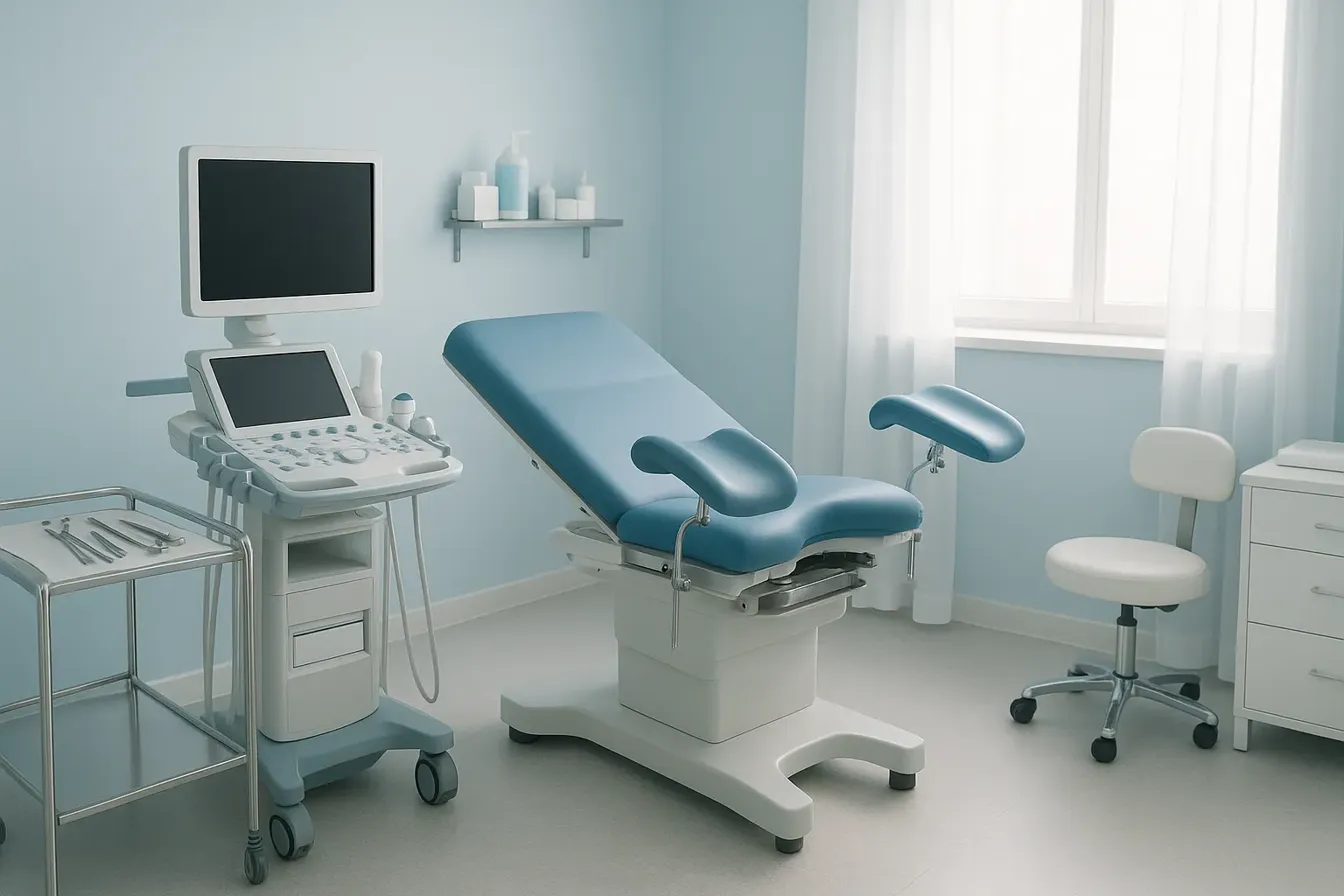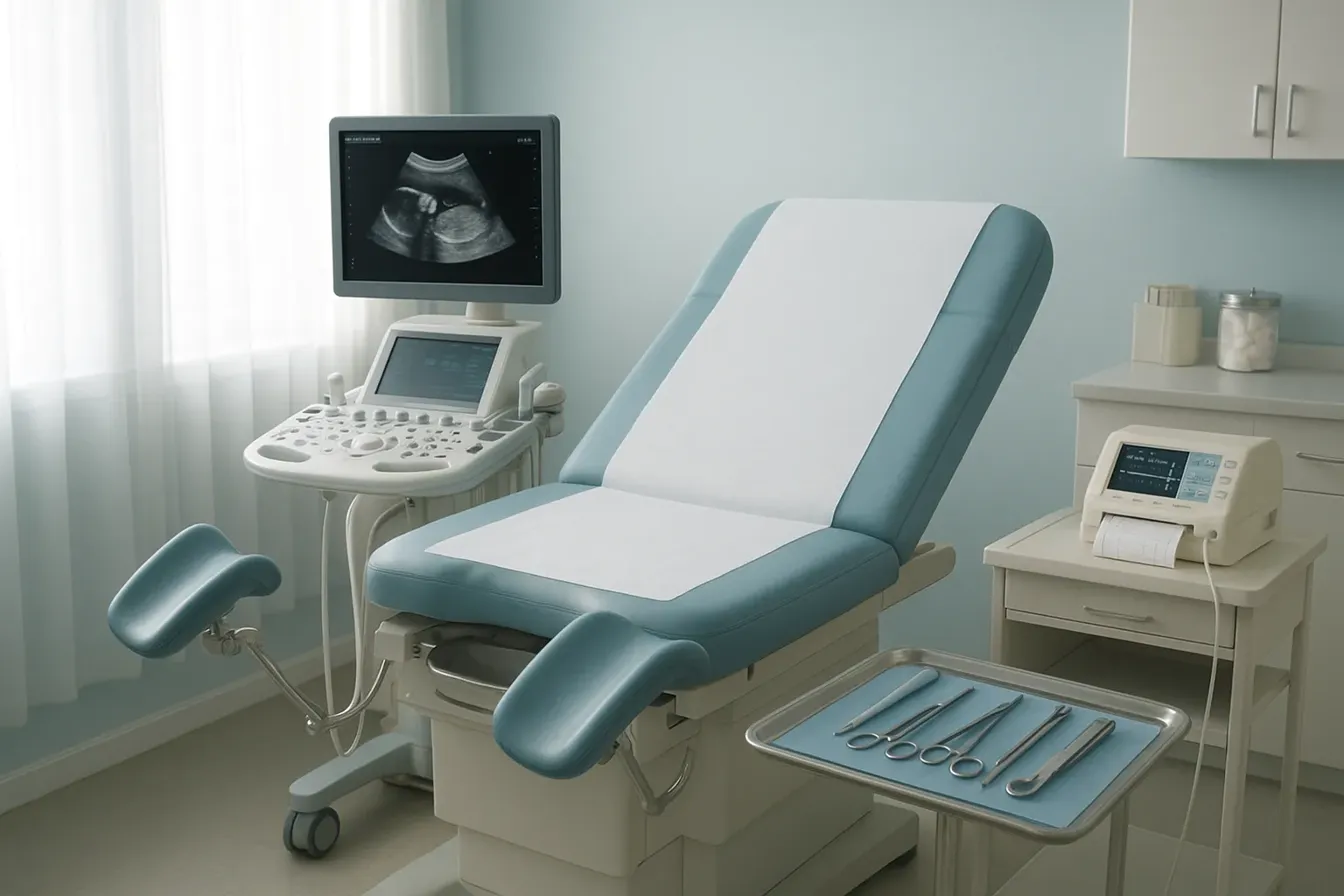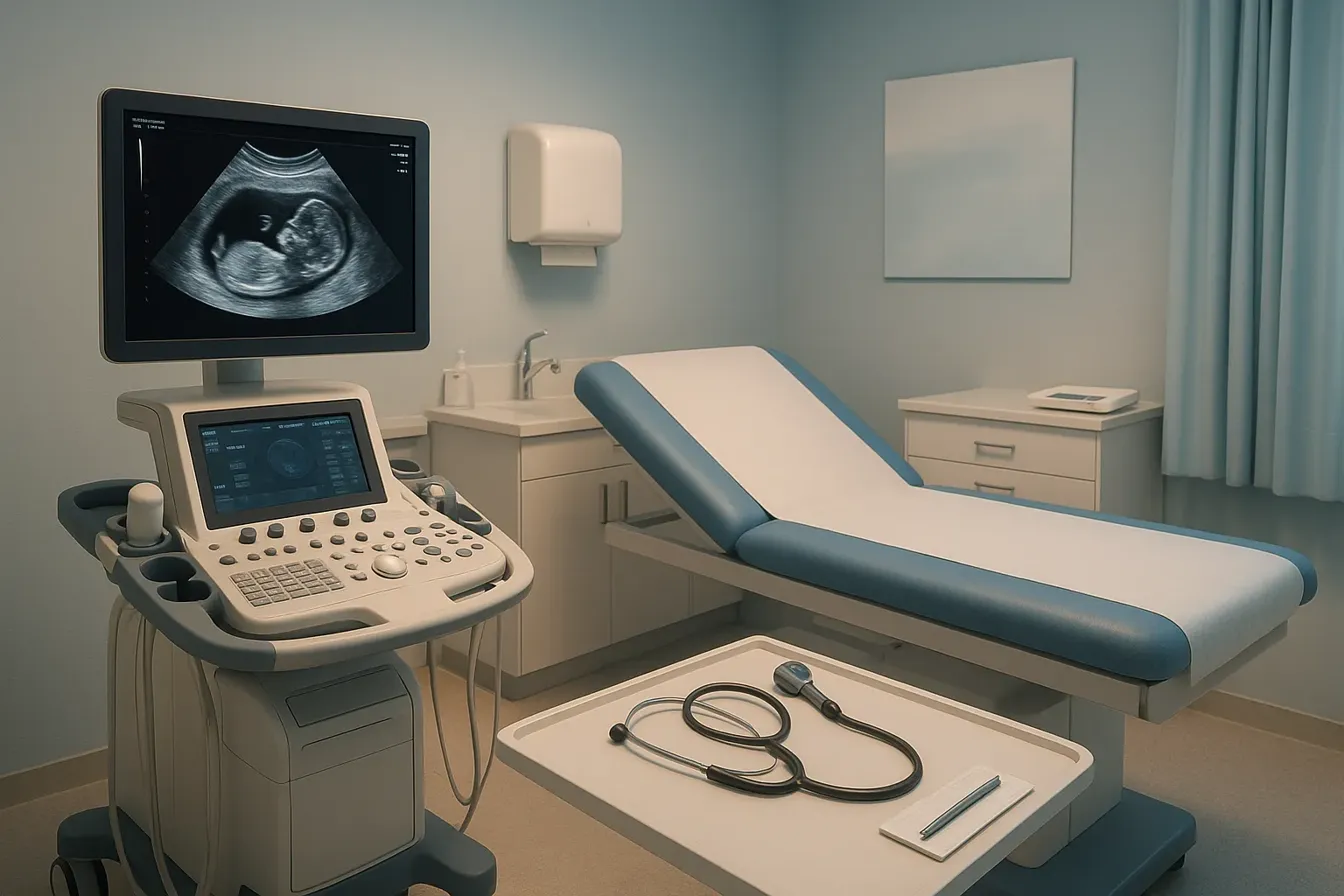Empowering Women Through Every Stage: A Lifelong Commitment to Health and Wellness

Understanding Menopause and Its Impact on Women's Health
Definition of Menopause
Menopause is defined as the point when a woman has gone 12 consecutive months without a menstrual period, marking the end of her reproductive years. Typically, menopause occurs around age 52, although this can vary individually.
Stages of Menopause
Menopause includes three stages:
- Perimenopause: Begins 8 to 10 years before menopause, often starting in the 40s, characterized by hormonal fluctuations causing irregular periods and symptoms like hot flashes and mood swings.
- Menopause: The moment after 12 months without menstruation, signaling the cessation of ovarian function.
- Postmenopause: The phase following menopause, during which symptoms may persist mildly and health risks increase.
Typical Age and Duration
The average age of menopause onset is around 52 in the United States. Menopause symptoms typically last about seven years but can extend up to ten years in some women.
Common Symptoms and Hormonal Changes
The decline of estrogen and progesterone during menopause leads to symptoms including hot flashes, night sweats, vaginal dryness, sleep disturbances, mood changes, brain fog, and changes in libido. Hormone levels such as estradiol decrease considerably, impacting bodily functions.
Health Risks Associated with Low Estrogen
After menopause, the decreased estrogen increases risks for osteoporosis—a loss of bone density—and cardiovascular diseases. Regular monitoring and preventive strategies are important for maintaining long-term health.
Women experiencing symptoms or health concerns related to menopause should consult healthcare providers to design personalized management plans.
Hormonal Changes During Menopause and Their Effects

What are the hormonal changes during menopause and how do they affect women's health?
Menopause is marked by a natural decline in ovarian hormone production, mainly estrogen and progesterone. This drop begins during perimenopause, the transitional phase lasting several years before menopause occurs. During this time, women experience significant hormonal fluctuations, including irregular estrogen and progesterone levels, which cause symptoms such as hot flashes, night sweats, irregular periods, mood changes, vaginal dryness, and sleep disturbances.
Estrogen levels, which normally range between 15-350 pg/mL in reproductive years, fall sharply around the final menstrual period, typically dipping below 10 pg/mL in postmenopause. Progesterone also decreases considerably, disrupting menstrual cycle regulation and contributing to symptoms.
These hormonal changes affect multiple body systems. A key impact is on bone health: estrogen loss accelerates bone density loss, increasing the risk of osteoporosis and fractures. Cardiovascular risk also rises due to estrogen’s protective role in maintaining healthy cholesterol levels and vascular function.
Diagnosing menopause primarily depends on menstrual history—specifically, the absence of periods for 12 consecutive months. Hormone tests measuring follicle-stimulating hormone (FSH) and estradiol can be useful adjuncts but are not definitive because hormonal levels can vary greatly during perimenopause.
Understanding these hormonal dynamics enables healthcare providers to tailor treatments, such as hormone therapy, aimed at alleviating symptoms and reducing long-term risks.
| Aspect | Description | Clinical Relevance |
|---|---|---|
| Estrogen and Progesterone | Decline during perimenopause and postmenopause | Causes hot flashes, dryness, mood changes (Management of menopause) |
| Hormonal Fluctuations | Irregular hormone levels in perimenopause | Leads to variable symptoms and irregular periods (Hormonal fluctuations during perimenopause |
| Bone Health Impact | Estrogen loss accelerates bone density reduction | Increased osteoporosis risk (Risks after menopause: osteoporosis and heart disease) |
| Cardiovascular Effects | Lower estrogen reduces protective cardiovascular effects | Elevated heart disease risk (Menopause and disease risks |
| Diagnostic Approach | Based on 12 months without periods, with hormone tests as support | Guides management and treatment decisions (Diagnosing menopause |
Effective Management of Menopausal Symptoms
How are menopausal symptoms effectively managed?
Menopausal symptoms are effectively managed through a combination of hormone therapy, nonhormonal medications, lifestyle adjustments, and personalized care plans. Hormone therapy (HT), also known as menopausal hormone therapy (MHT), remains the most effective medical treatment for common symptoms such as hot flashes, night sweats, vaginal dryness, and mood disturbances. HT replaces the estrogen and progesterone that the ovaries stop producing during menopause, alleviating symptoms and helping prevent osteoporosis and cardiovascular risks associated with low estrogen.
What forms of hormone therapy are available?
Hormone therapy is available in systemic and local forms:
- Systemic hormone therapy delivers estrogen (with progesterone if the uterus is present) throughout the body and is commonly administered via pills, patches, gels, or sprays. This approach addresses a broad range of menopausal symptoms and helps reduce osteoporosis risk (Hormone replacement therapy (HRT) for menopause).
- Local vaginal estrogen therapy involves creams, tablets, or rings applied directly to the vaginal area to treat genitourinary symptoms like vaginal dryness and urinary discomfort. These have minimal systemic absorption and can be used long-term (Low-dose vaginal estrogen therapy).
What nonhormonal treatments can help?
For women who cannot or prefer not to use hormone therapy, multiple nonhormonal pharmacologic options are available:
- Selective serotonin reuptake inhibitors (SSRIs) and serotonin-norepinephrine reuptake inhibitors (SNRIs), commonly antidepressants, reduce hot flashes and mood symptoms (Nonhormonal medications for menopause symptoms.
- Gabapentin and clonidine are additional medications shown to relieve vasomotor symptoms like hot flashes and night sweats (Nonhormonal treatment options.
Behavioral therapies such as cognitive behavioral therapy (CBT) for menopause also improve mood, sleep, and vasomotor symptoms, serving as important adjuncts or alternatives to medication.
How do lifestyle modifications support menopause management?
Complementary lifestyle changes play a vital role in symptom relief and health maintenance during menopause. Recommendations include:
- Regular physical activity, including weight-bearing exercises, which supports bone health and weight management (Lifestyle changes for menopause.
- A balanced diet rich in calcium and vitamin D to reduce osteoporosis risk (Calcium and vitamin D for menopause).
- Avoiding hot flash triggers like caffeine, spicy foods, and alcohol.
- Stress management and good sleep hygiene to improve overall well-being (Lifestyle modifications for menopause.
What are the risks and benefits of hormone therapy?
Hormone therapy offers substantial benefits including effective symptom relief, prevention of bone loss, and potential cardiovascular protection when started within 10 years of menopause or before age 60 (Risks and benefits of HRT. However, it carries some risks such as increased chances of stroke, blood clots, and breast cancer, which vary based on the type and duration of therapy, as well as individual patient factors. Transdermal estrogen may reduce some risks compared to oral forms.
Why is personalized treatment important?
Menopause management should be individualized, with healthcare providers taking into account a woman’s age, symptom severity, health history, and risk factors (Consulting healthcare providers for menopause. Personalized plans ensure that the lowest effective hormone dose is used for the shortest duration needed, with regular follow-ups to monitor benefits and side effects (MHT patient review schedule. Shared decision-making is essential to balancing symptom relief with safety.
This tailored approach supports women through the menopausal transition, improving quality of life and long-term health outcomes (Personalized menopause treatment).
The Role of Woman-Led Healthcare Providers in Menopause Care

What services does a woman-led healthcare provider specializing in obstetrics and gynecology typically offer?
Woman-led healthcare providers in obstetrics and gynecology deliver comprehensive services across all stages of a woman's life, from puberty through menopause. Their offerings include prenatal care, childbirth support, fertility treatments, and personalized menopause management. They specialize in hormone therapy tailored to individual needs and provide treatment for complex conditions such as endometriosis and gynecologic cancers. Utilizing advanced diagnostic tools like 3D and 4D ultrasounds and biopsies, they provide accurate assessment and care. To enhance accessibility, especially in diverse regions like Queens, NY, many incorporate telemedicine and community outreach programs.
Why might a woman prefer to seek care from a woman-led healthcare provider specializing in women's health?
Women often choose woman-led providers due to an enhanced understanding and empathy regarding sensitive issues unique to female health. These providers typically spend more time during visits, creating a trusting environment that encourages open communication. They maintain a strong commitment to gender-specific research and treatment innovations. Importantly, their care is culturally sensitive and personalized, recognizing the diverse needs and backgrounds of their patients. This approach greatly improves health outcomes and satisfies women seeking attentive, respectful menopause care, particularly within multicultural communities such as Queens, NY.
How do woman-led practices enhance menopause care?
Woman-led practices emphasize empathetic communication and patient engagement to address the physical and emotional challenges of menopause. They integrate advanced diagnostics for precise hormone management and symptom tracking. Furthermore, telemedicine services offer convenience and continuous support, ensuring care remains patient-centered and accessible. This comprehensive and sensitive approach ensures women receive holistic support during menopause that aligns with their unique experiences and health goals.
Advantages of Choosing Women’s Health Providers in Queens, NY

What are the key benefits of choosing a healthcare provider located in Queens, NY, for women's health?
Choosing a healthcare provider in Queens, NY, for women's health offers several significant advantages that ensure comprehensive and tailored care.
Access to Specialized Local Care
Queens women benefit from providers who understand the unique health concerns of the diverse local community, including specialized care for high-risk pregnancies, gynecologic oncology, menopause management, and chronic disease prevention.
Availability of Advanced Facilities and Multidisciplinary Teams
Local facilities such as NYC Health + Hospitals/Queens and Northwell Health provide access to teams that include obstetricians, endocrinologists, cardiologists, mental health professionals, and nutritionists, creating an integrated approach to women's health. These centers offer advanced diagnostics, osteoporosis screening, heart health monitoring, and support for menopause and midlife health needs.
Culturally Competent and Patient-Centered Care
Providers in Queens emphasize culturally responsive care tailored to individual patient needs, ensuring respectful communication, awareness of cultural health perspectives, and personalized treatment plans for conditions like menopause and hormonal imbalances.
Partnerships with Top Hospitals and Specialists
Collaboration with premier institutions such as Mount Sinai and NewYork-Presbyterian expands access to cutting-edge therapies, clinical trials, and expert consultations, offering a continuum of care for complex gynecological, cardiovascular, and bone health conditions.
Convenience and Community-Based Support
Receiving care close to home in Queens allows for easier scheduling, ongoing follow-up, and connection with local support groups and resources. This community-based approach supports women through various life stages with continuity and comfort, including specialized menopause treatment and support in Queens, NY.
Together, these advantages provide Queens women with holistic, advanced, and individualized healthcare, making local providers an excellent choice for women’s health needs.
Addressing Common Menopause-Related Challenges: Weight Gain, Sleep, and Emotional Health

How does menopause impact weight, sleep, and emotional well-being, and how can these be managed?
Menopause triggers significant hormonal changes, especially the decline in estrogen and progesterone. These changes cause metabolic shifts that lead to weight gain, commonly accumulating around the abdomen — a phenomenon often called "menopause belly". Reduced muscle mass and slower calorie burning also contribute to this shift. Hormone therapy (HT) may help redistribute body fat but is not effective for weight loss.
Sleep quality often declines due to hot flashes, night sweats, and hormonal disruptions. These disturbances, alongside mood fluctuations such as anxiety and depression, further impair restful sleep. Cognitive symptoms, including difficulty concentrating and memory issues, may arise, sometimes referred to as "brain fog".
Mood changes range from irritability to clinical depression, partly due to hormonal variability during perimenopause and menopause. Anxiety and lower sex drive can also occur. Effective management blends behavioral therapies like cognitive behavioral therapy (CBT) for menopause and medical treatments such as hormone therapy or certain antidepressants.
Lifestyle interventions are essential for symptom relief and overall well-being. Regular physical activity, including weight-bearing and muscle-strengthening exercises, helps combat muscle loss and supports mood enhancement through endorphin release. Nutritional strategies emphasize a Mediterranean-style diet rich in anti-inflammatory whole foods which may reduce inflammation and cardiovascular risks (Management of menopause.
Stress reduction, good sleep hygiene, maintaining social support, and avoiding triggers such as spicy foods, caffeine, alcohol, and smoking further improve symptoms. Personalized treatment plans developed with healthcare providers—especially for women in communities like Queens, NY—ensure optimal management tailored to individual needs and health risks (Menopause care in Queens, NY, Menopause Care in Queens NY).
Monitoring and Preventive Care in Postmenopause

What are the risks of osteoporosis and cardiovascular disease after menopause?
Postmenopausal women face increased risks of osteoporosis and cardiovascular disease due to the significant decline in estrogen levels. Estrogen helps maintain bone density and cardiovascular health, and its decrease leads to accelerated bone loss, particularly in the first few years after menopause, increasing the likelihood of fractures. Moreover, reduced estrogen contributes to unfavorable changes in cholesterol and blood vessel function, heightening heart disease risks.
Why is bone density and cardiovascular screening important for postmenopausal women?
Screening tests like bone density scans (DEXA) are essential to detect early osteoporosis or loss of bone mass, enabling timely interventions to prevent fractures. Cardiovascular screening, including blood pressure, lipid profiles, and heart health assessments, helps identify and manage heart disease risk factors early, which is crucial given the elevated cardiovascular risks post menopause. More details are available on menopause health risks and screening.
What preventive treatments are available, including menopausal hormone therapy (MHT)?
Menopausal hormone therapy (MHT) — involving estrogen alone or combined with progesterone — effectively reduces menopause symptoms and prevents bone loss, thereby lowering fracture risk. Initiation of MHT within 10 years of menopause or before age 60 offers protective cardiovascular benefits in some women. Bone-strengthening drugs such as bisphosphonates, calcium and vitamin D supplements, and lifestyle modifications also contribute to prevention. For detailed treatment options, see menopause treatment resources.
Which lifestyle recommendations assist in reducing these health risks?
Adopting a healthy lifestyle is vital, including regular weight-bearing exercise to maintain bone strength, a balanced diet rich in calcium and vitamin D, limiting alcohol and caffeine intake, not smoking, and maintaining a healthy body weight. Stress management and regular physical activity additionally support cardiovascular and overall health. For evidence-based lifestyle guidance, consult lifestyle changes for menopause and menopause weight management.
How are long-term follow-up and personalized care plans managed?
Ongoing care involves annual evaluations to monitor symptom progression, bone density, cardiovascular health, and treatment side effects. Personalized care plans are developed based on individual risk factors, preferences, and responses to therapies, ensuring optimal management and quality of life throughout postmenopause. Women in Queens, NY, and similar settings are encouraged to engage with specialized healthcare providers for comprehensive menopause care and personalized menopause treatment.
Emerging Treatments and Research in Menopause Management
New pharmacologic options like neurokinin receptor antagonists
Recent advances in menopause care include the development of neurokinin receptor antagonists, such as fezolinetant, approved in 2023. This novel nonhormonal treatment effectively reduces moderate to severe hot flashes by targeting neurokinin 3 receptors involved in the body's temperature regulation. It offers a valuable option for women who cannot or prefer not to use hormone therapy, with good safety and efficacy profiles noted in clinical trials.
Advances in nonhormonal therapies
Beyond traditional hormone replacement therapy, nonhormonal medications including selective serotonin reuptake inhibitors (SSRIs), serotonin-norepinephrine reuptake inhibitors (SNRIs), gabapentin, and clonidine have been used effectively to ease vasomotor symptoms and mood disturbances. Cognitive behavioral therapy (CBT) for menopause and clinical hypnosis also show promise for symptom management, representing a growing interest in holistic and behavioral treatment strategies.
Ongoing research on genetic and racial differences in symptoms
Research continues to explore why menopausal symptom severity varies among individuals. Notably, studies are investigating genetic factors and racial differences, such as why African American women tend to experience more intense and prolonged hot flashes. Efforts like the Study of Women’s Health Across the Nation (SWAN) contribute to illuminating the biological and social factors influencing symptom patterns, aiming to tailor care more precisely.
Holistic approaches including integrative medicine
Menopause care increasingly embraces integrative medicine in menopause care that address physical, emotional, and nutritional needs. Practices such as acupuncture, nutritional counseling, mind-body therapies, and relaxation techniques complement medical treatments, improving overall well-being. This multidisciplinary model supports individual preferences and helps manage complex symptoms.
Future directions for personalized menopause care
Looking ahead, personalized menopause management focuses on individualized risk assessments and treatment plans considering age, health status, symptom severity, and genetic background. Emerging therapies combined with lifestyle modifications and targeted support offer a more comprehensive approach. Ongoing clinical trials and research continue to refine safe and effective treatment protocols to improve the quality of life for menopausal women across diverse populations.
Empowering Women Through Personalized Menopause Care in Queens, NY
Comprehensive Approach to Menopause Management
Managing menopause effectively means addressing the physical, emotional, and social changes women face. Treatment strategies include hormone therapy to relieve hot flashes and vaginal dryness, nonhormonal medications for symptom control, lifestyle modifications such as exercise and diet, and behavioral therapies like cognitive behavioral therapy.
Importance of Individualized Care Plans
Each woman’s menopause journey is unique. Personalized treatment plans consider age, symptom severity, health risks such as cardiovascular disease and osteoporosis, and personal preferences. Regular follow-ups ensure treatments are safe, effective, and adjusted over time.
Women-Led Healthcare Practices
In Queens, NY, many healthcare providers specialize in menopause care with certification from the North American Menopause Society. These women-led practices prioritize compassionate, evidence-based care, ensuring patients feel supported and understood throughout their midlife transition.
Encouragement to Seek Expert Support
Women experiencing menopausal symptoms are encouraged to consult healthcare providers early. Expert guidance helps manage symptoms, prevent long-term health risks, and improve quality of life through tailored therapies and interventions.
Resources and Ongoing Education
Queens offers access to multidisciplinary clinics and educational programs to empower women. These include webinars, support groups, and specialized clinics focusing on comprehensive midlife health, encouraging women to stay informed and proactive in their care.





.png)